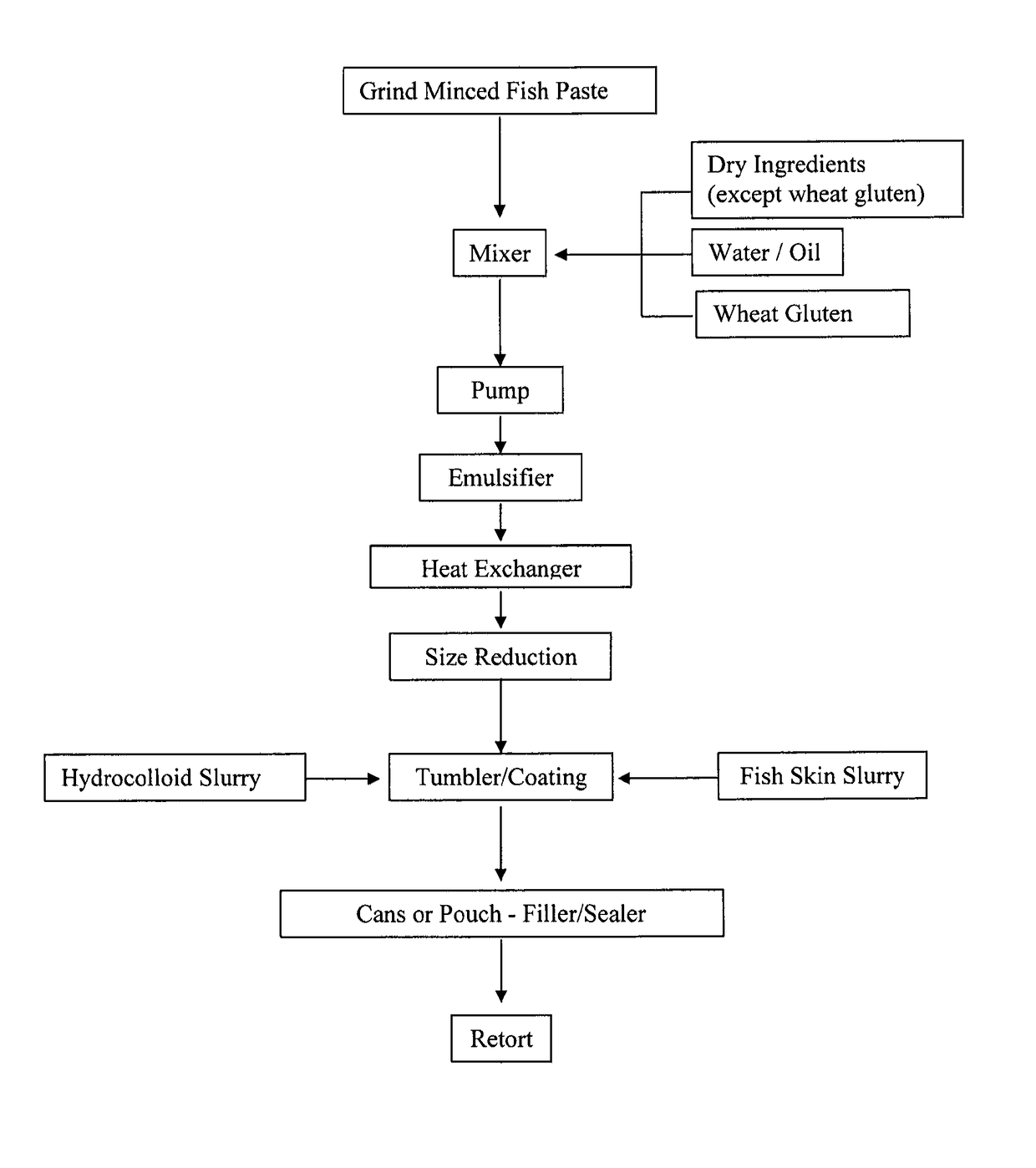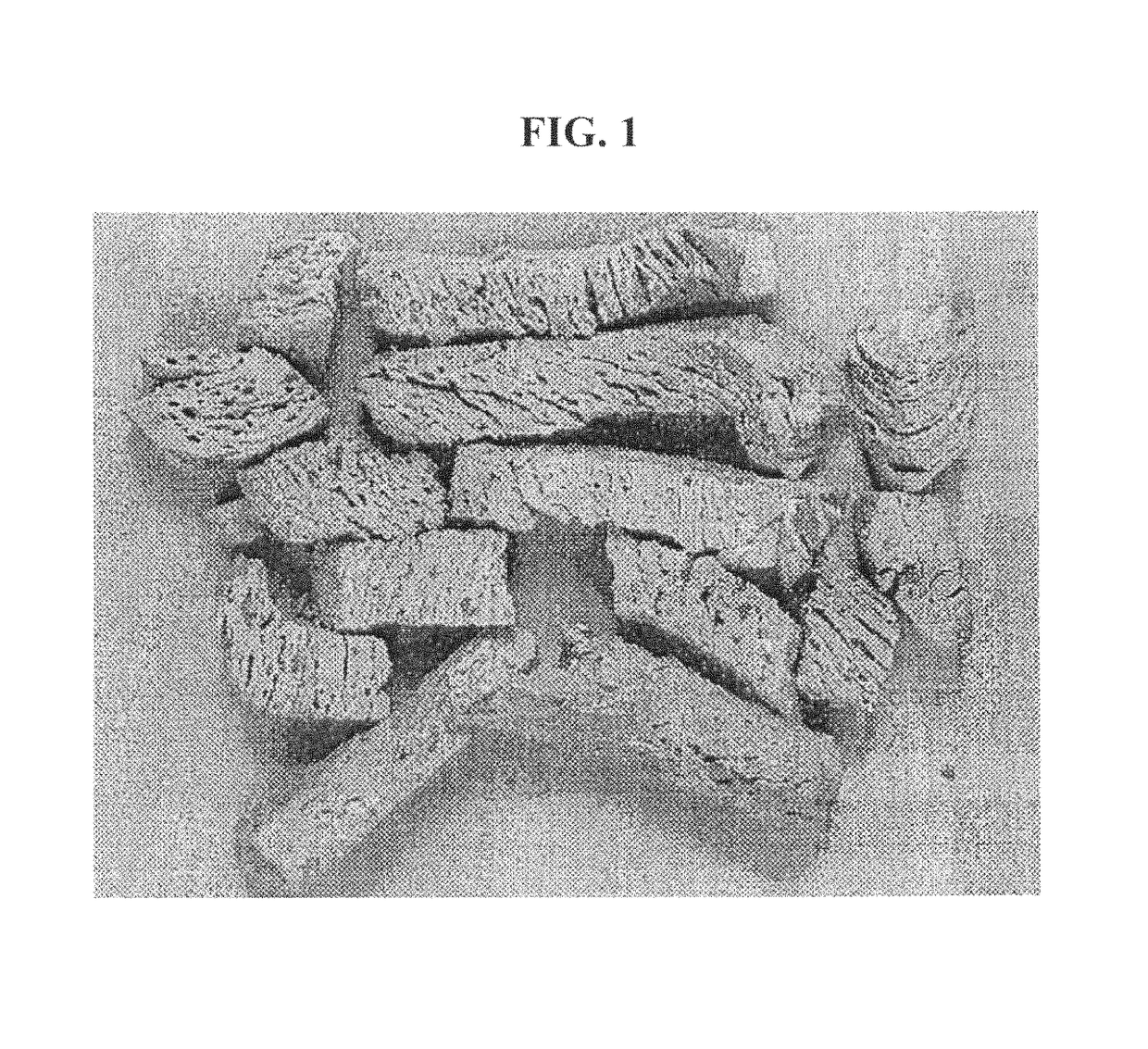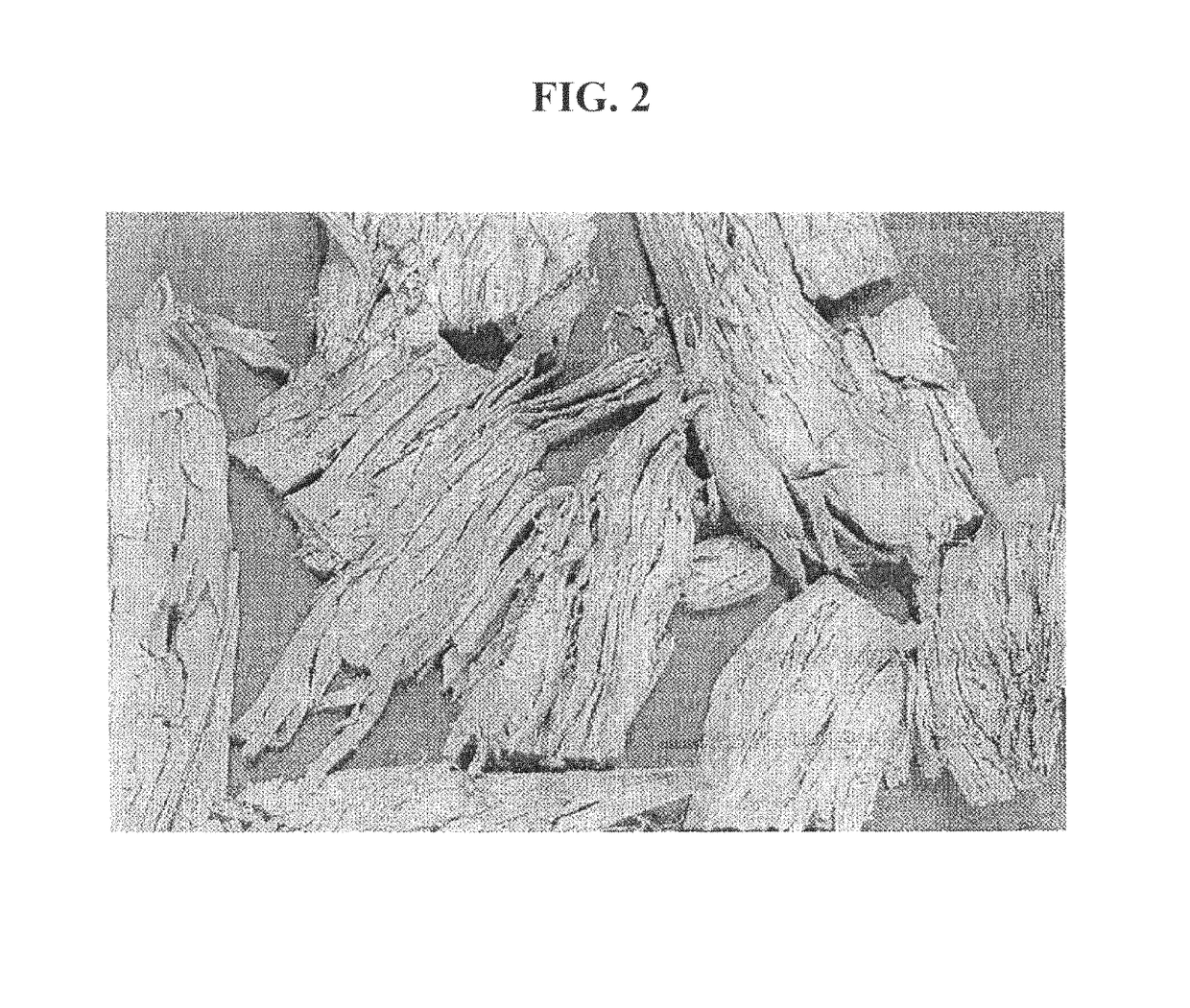Flaked fish analogs and methods for making such analogs
a technology of analogs and fish, applied in the field of food analogs, can solve the problems of lack of structure, texture and appearance of real meat chunks, products that are not suitable for use in applications, and fail to provide fish analogs with acceptable appearance and texture that mimic real fish, and achieve the effect of realistic fish-like appearan
- Summary
- Abstract
- Description
- Claims
- Application Information
AI Technical Summary
Benefits of technology
Problems solved by technology
Method used
Image
Examples
example 1
[0065]A flaked fish analog was made based upon the formulation shown in Table 1. 145 kilograms (kg) of frozen white fish surimi was size reduced with a grinder with plate openings 6.35 mm diameter and fed to a paddle mixer. The temperature was brought up to 35° C. by direct steam injection to enable proper mixing. All of the ingredients for the fish meat (Table 1.) except wheat gluten were added to the surimi in the mixer in the sequence: dries, oil, and then water. This mixture was blended for 5 minutes until a homogenous mix was obtained. The wheat gluten (30 kg) was then added to the slurry which was mixed for 5 minutes until uniform dough was formed. The moisture of the dough was determined with a microwave heating analyzer. It was 64.5% and within target range. The dough was then pumped to a continuous emulsifier. In addition to being emulsified, the pressure on and the temperature of the mass increased. The temperature fluctuated in a range 148 to 154° C. and the pressure 70 t...
example 2
[0066]A flaked fish analog having fish skin was made based upon the formulation shown in Table 1 and the flaked fish analog prepared in Example 1. A minced fish skin slurry suitable for use to make a flaked fish analog having fish skin was created as follows. To prepare 250 kg of minced fish skin slurry, 40 kg of frozen blocks of ocean whitefish skin was coarse ground through an extructor and then further size reduced to produce skin pieces 1 to 4 mm on its longest side. A uniform gum dispersion was prepared by adding 500 grams of xanthan gum slowly to 209.5 kg water in a high speed gum dispersing system. The gum dispersion and the minced fish skin were then combined in a cooker-mixer and mixed to produce a fish skin gum dispersion that has a uniform suspension of the skin pieces.
[0067]100 kg of a flaked fish analog having fish skin was made by combining 50 kg of the flaked fish analog from Example 1 with 50 kg of the fish skin gum dispersion in a tumbler / coater for about 1 to 2 min...
example 3
[0069]A flaked fish analog was made based upon the formulation shown in Table 2. The analog was produced using the same methodology given in Example 1 with some variations to accommodate a fish source with lower structural functionality. 111.8 kg of frozen oceanwhite scrapfish and 111.8 kg of frozen mechanically deboned chicken were size reduced with an extructor and then ground through a plate with 6.35 mm diameter opening as described in Example 1. The ground fish and chicken were then pumped through a continuous emulsifier where the temperature was also brought up to 35° C. due to mechanical heating. This emulsified product was pumped into a paddle dough mixer. At the same time, a slurry of soy protein isolate (26 kg), fish oil (15.6 kg), powdered cellulose (7.8 kg), titanium dioxide (92.08 kg), dried egg white (5.2 kg), salt (5.2 kg), vitamins / minerals premix (6.24 kg), and water (171.08 kg) was made in a high speed / high shear disperser (Breddo Likwifier). The dries and liquids ...
PUM
| Property | Measurement | Unit |
|---|---|---|
| pressure | aaaaa | aaaaa |
| temperature | aaaaa | aaaaa |
| temperature | aaaaa | aaaaa |
Abstract
Description
Claims
Application Information
 Login to View More
Login to View More - R&D
- Intellectual Property
- Life Sciences
- Materials
- Tech Scout
- Unparalleled Data Quality
- Higher Quality Content
- 60% Fewer Hallucinations
Browse by: Latest US Patents, China's latest patents, Technical Efficacy Thesaurus, Application Domain, Technology Topic, Popular Technical Reports.
© 2025 PatSnap. All rights reserved.Legal|Privacy policy|Modern Slavery Act Transparency Statement|Sitemap|About US| Contact US: help@patsnap.com



